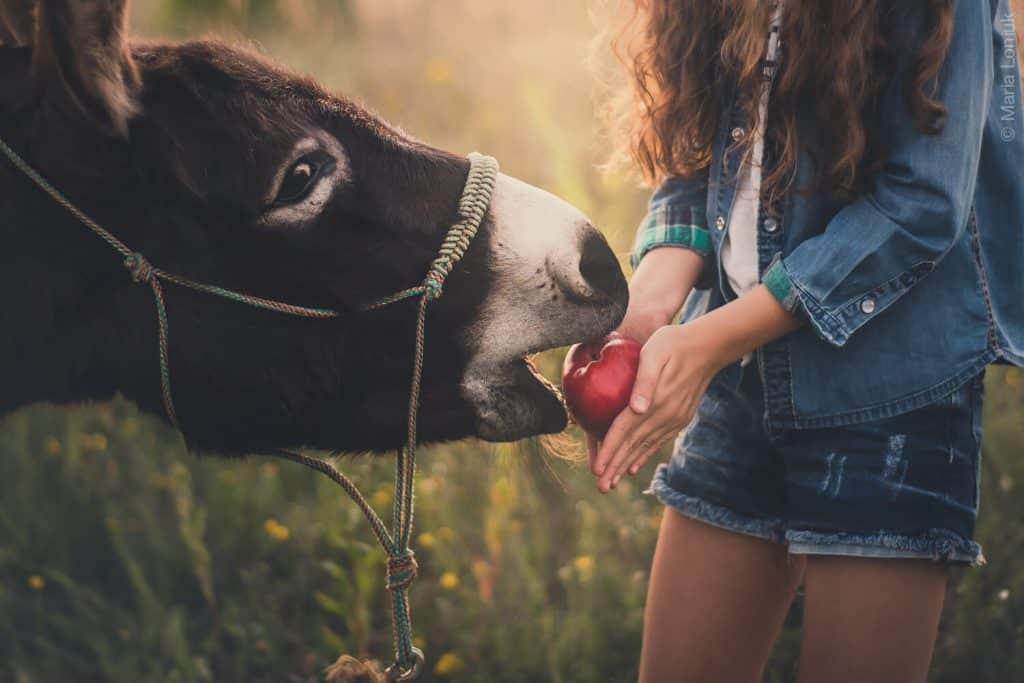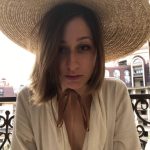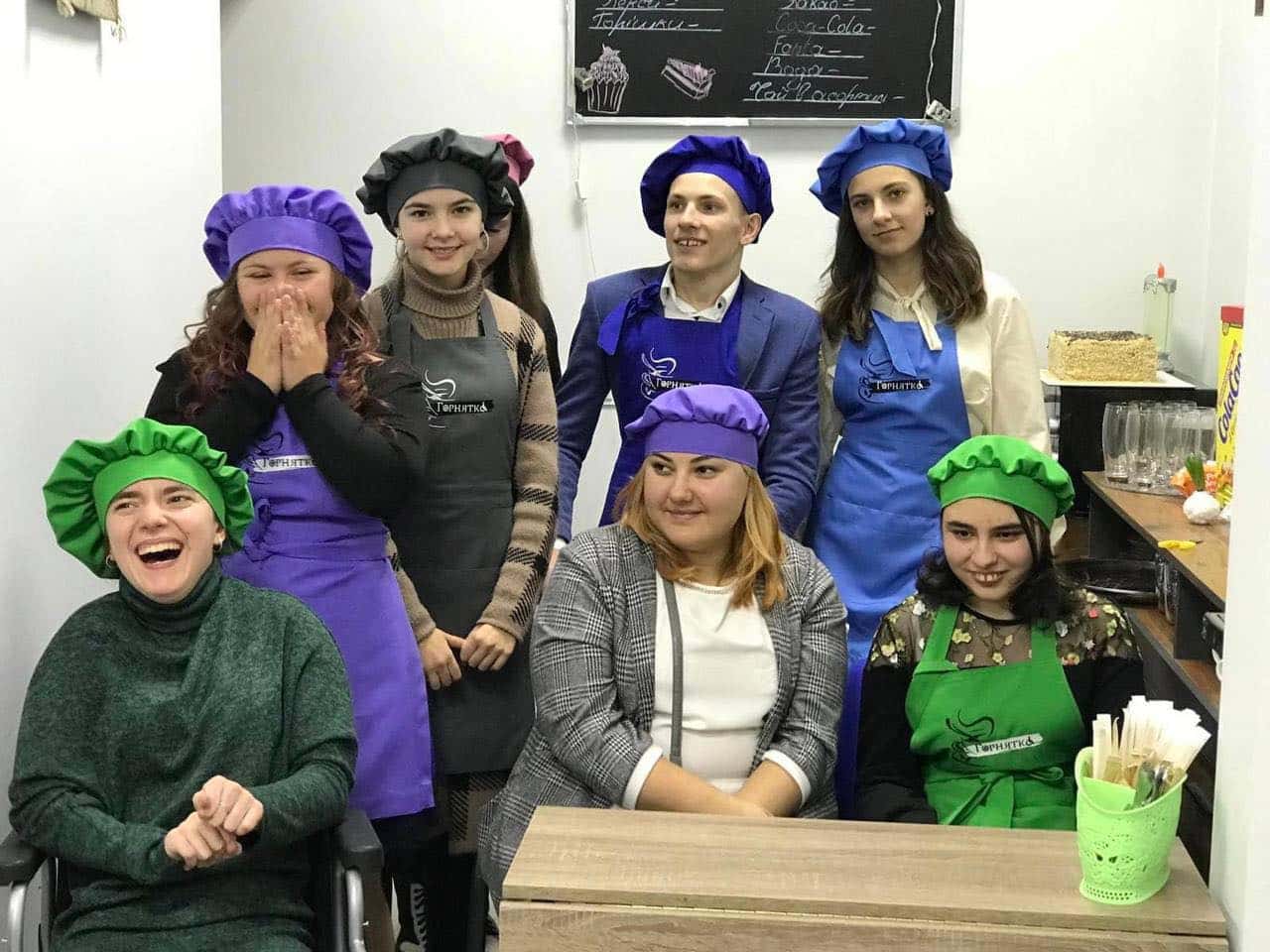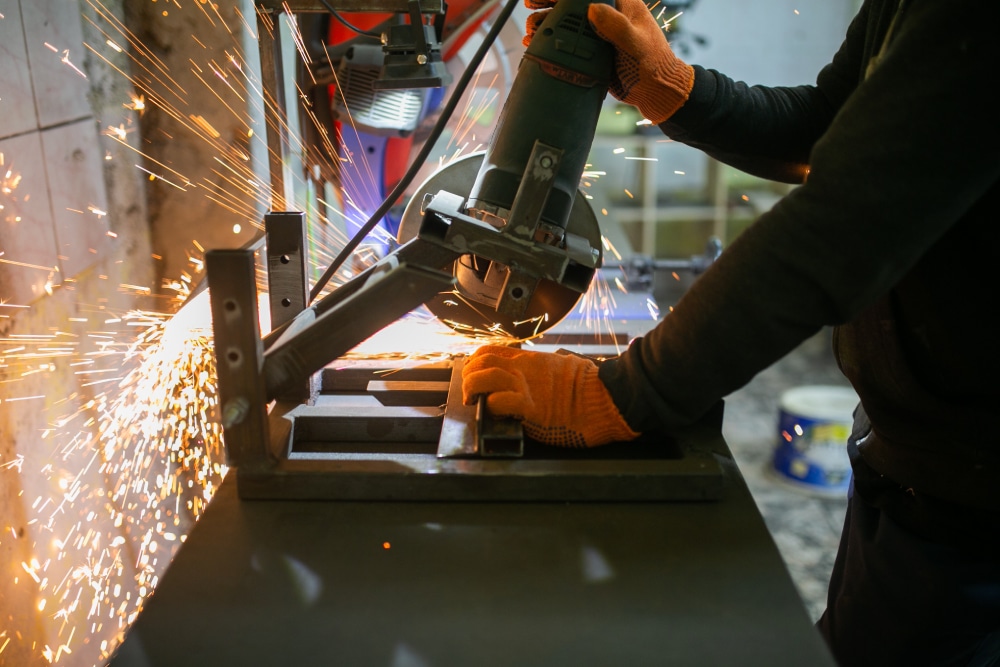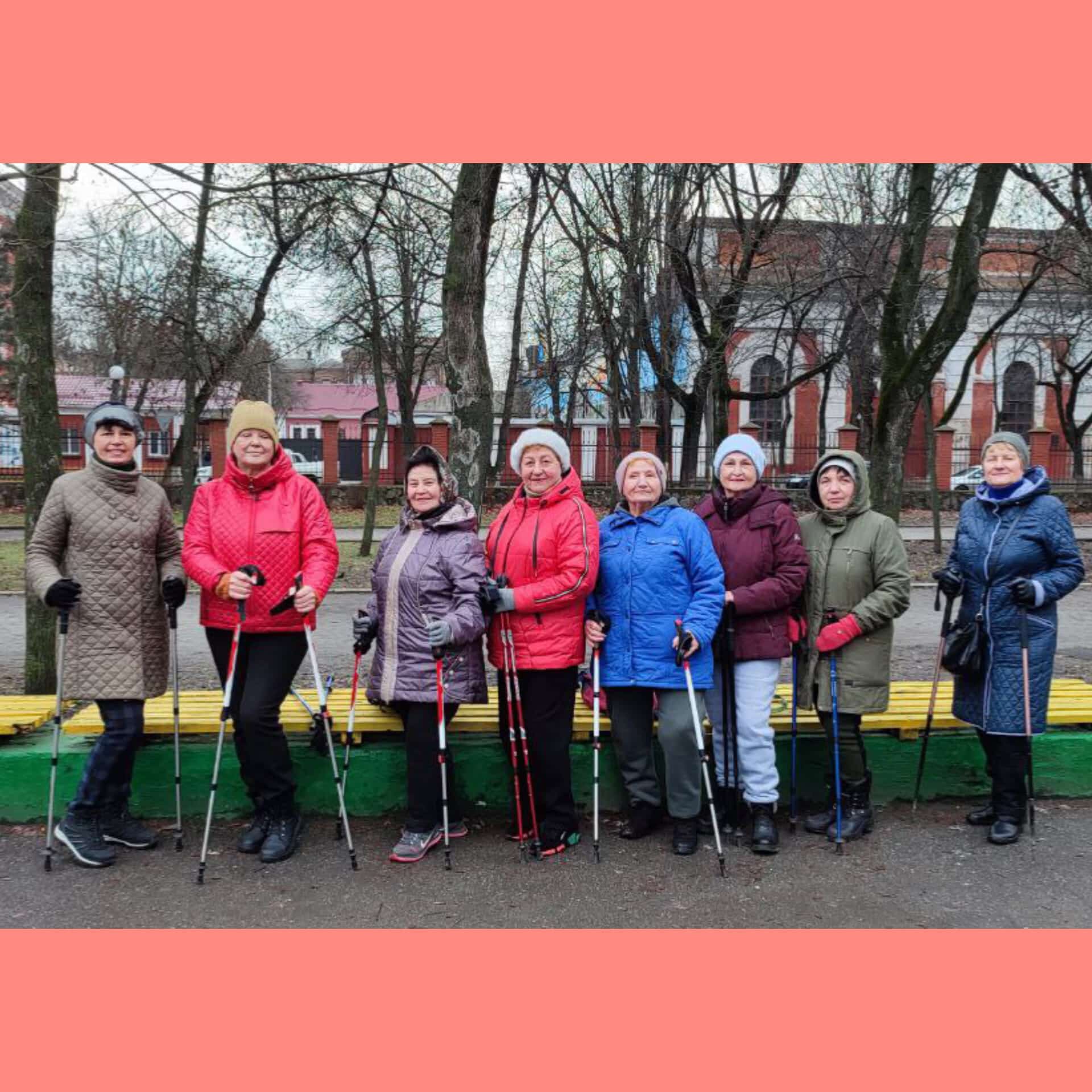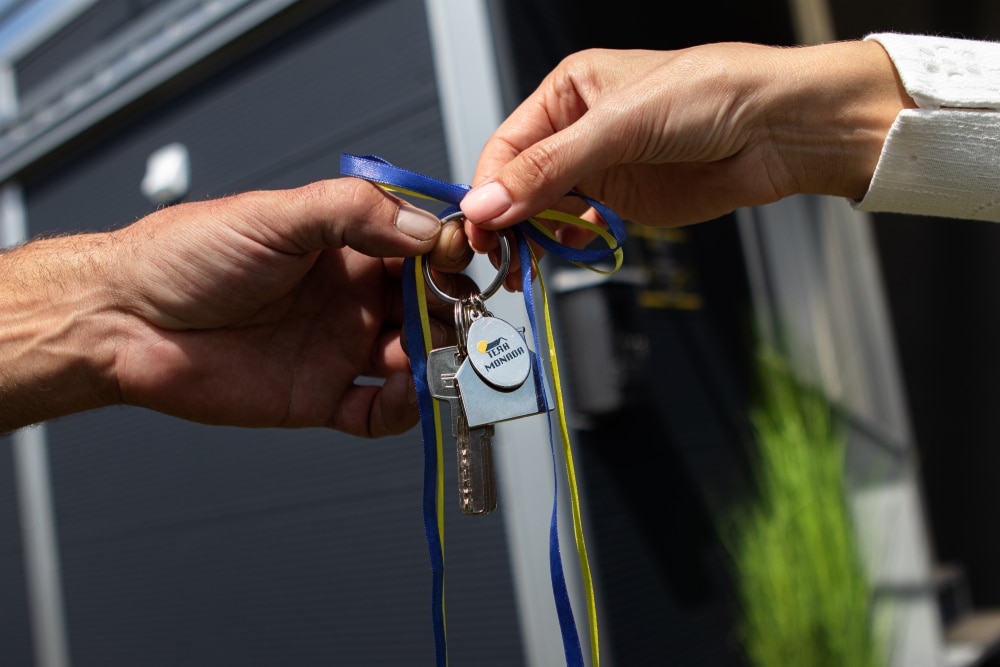32-year-old Roman Poberezhnyi owns a horse club in Boyarka, Kyiv region. Besides horses, ponies, goats, rams, dogs, and cats also live there. In total, there are approximately 45 household members. Only a month ago, they all returned home because when the front approached Boyarka, Roman had to transport all the animals for two weeks by an old bus to the Cherkasy region, away from the shelling. After setting up the farm, the man returned to the Kyiv region to help with the exhumation of people killed by the Russians.
You can’t be ready for this
Roman remembers that experience thoughtfully, carefully choosing his words. In the spring, when his animals were already safe, he persistently looked for ways he could be helpful. The man has no military experience, so he didn’t take up arms. He became a volunteer instead. When the Russian army left the Kyiv region, leaving behind ruins, it was necessary to help there.
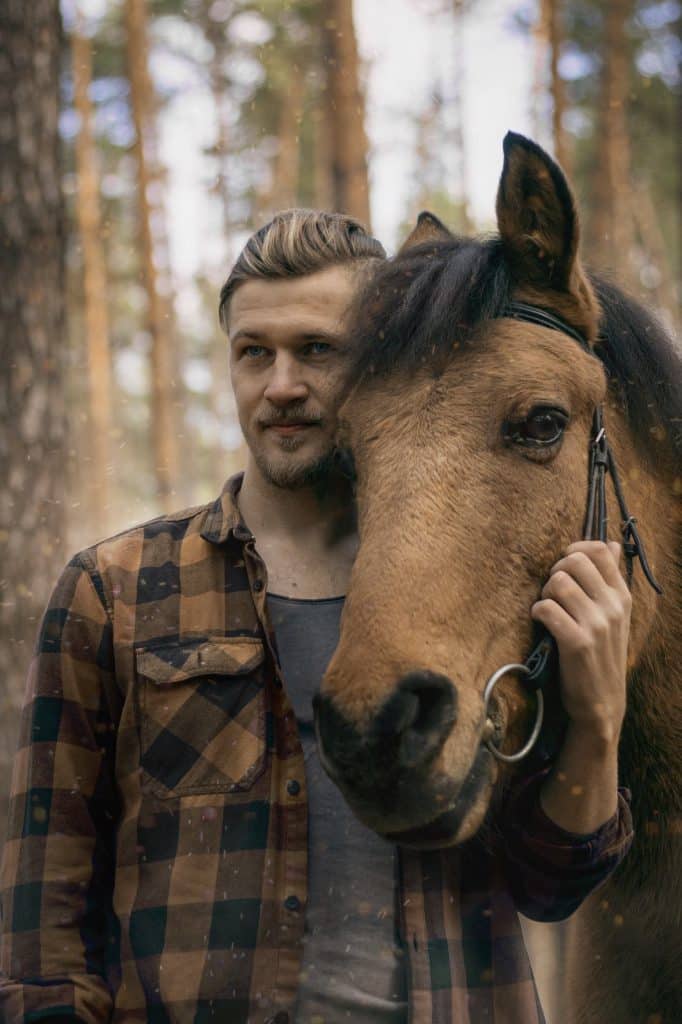
“I wrote to all the volunteer groups, asking if they needed any assistance because I had a car and could be helpful. One day volunteers called and asked to join the exhumation of bodies from mass graves in Borodianka. They asked if I was doing well mentally. But you will never be ready for this,” he says.
That is how Roman helped with the exhumation of people killed by Russian troops in the north Kyiv Region. With other volunteers, he joined the volunteer mission “сargo-200” (code word referring to casualties). After the police inspected the crime scene, they took the bodies from the temporary graves and transported them by car. In such trips, they transported up to a dozen killed people per day. They were found everywhere: hastily buried somewhere in the cemetery, in the middle of the yard, on the territory of the local hospital. People were lying in gardens — one person, two, five.
The police drew up reports and took statements and photos so that relatives or close people could recognize a currently unknown person in the future. After that, the bodies were taken to the regional morgues.
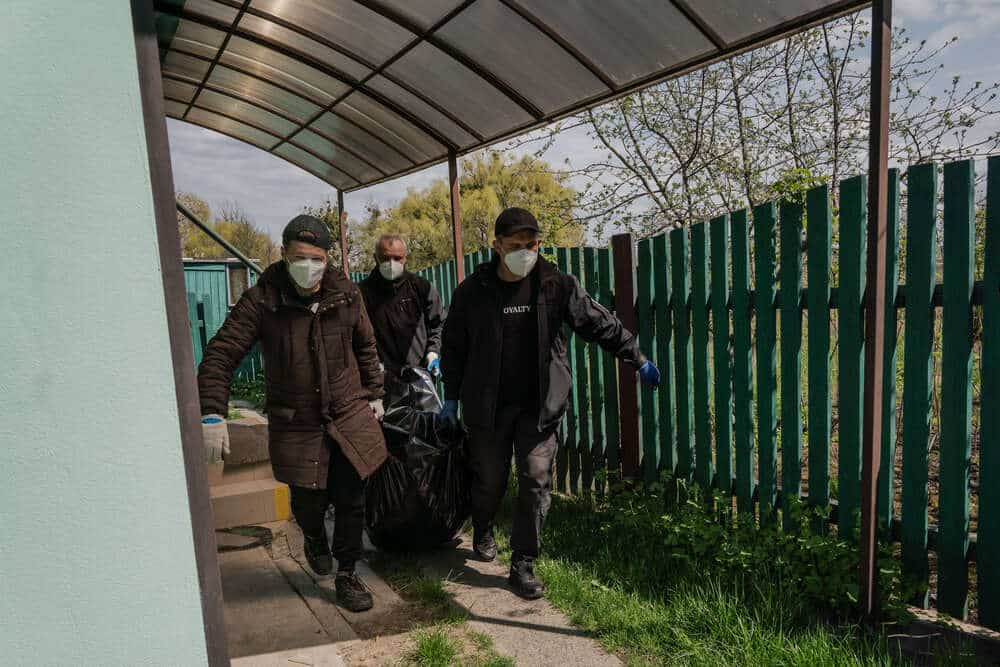
Sometimes dead people were lying in the ground for a month or even more. We took them out of the ground and saw mutilated faces, moldy clothes, and a bloody mass covered in mud. And even worse:
“Acquaintances said that they dug up bodies that could fit into a jar. I was afraid to see something like this. And it was also scary to get children or women.
Roman participated in four exhumations. One day, the volunteer stopped calling and asking for help. It seems that all the dead were dug up and found their final resting place.
In total, over 300 people were found killed in mass graves in Borodianka.
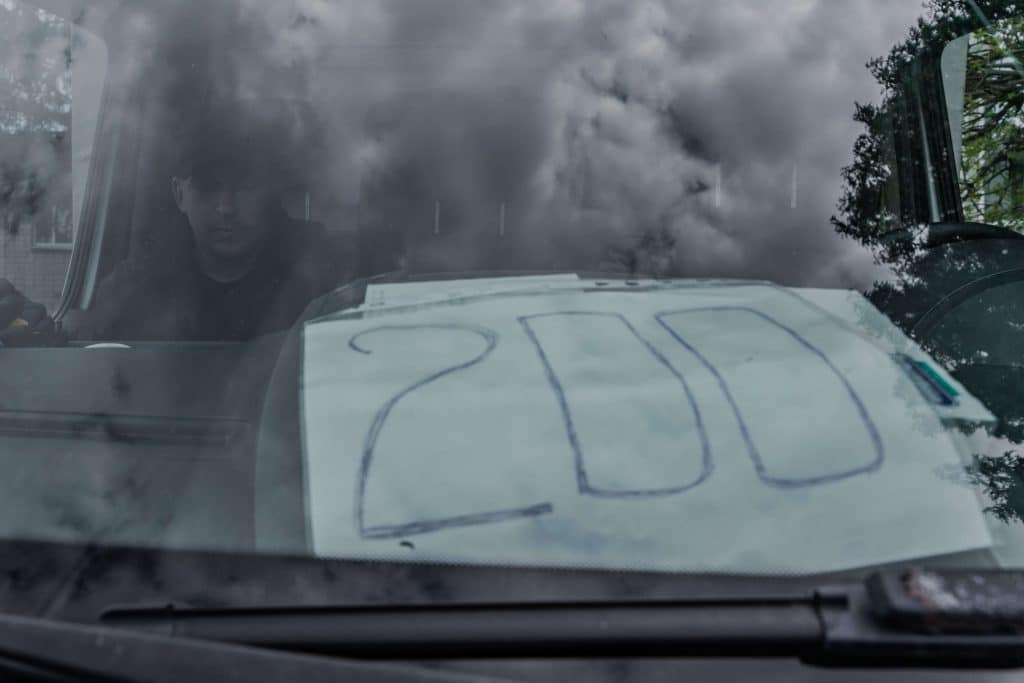
A coincidence that became a dream
After Roman recovered from what he saw, and after the region de-occupation, the threat of a repeated attack on Kyiv decreased, he started thinking about how to bring his animals back.
It was the dream of Roman’s sister Maria to work with horses. Since childhood, she has volunteered in the horse club. She loves animals very much. Once Roman was a student of the National Academy of Statistics, Accounting and Auditing in Kyiv, but later left his studies to become an entrepreneur. In order to gain experience, he went to work in the field of sales and later in a service center for digital equipment.
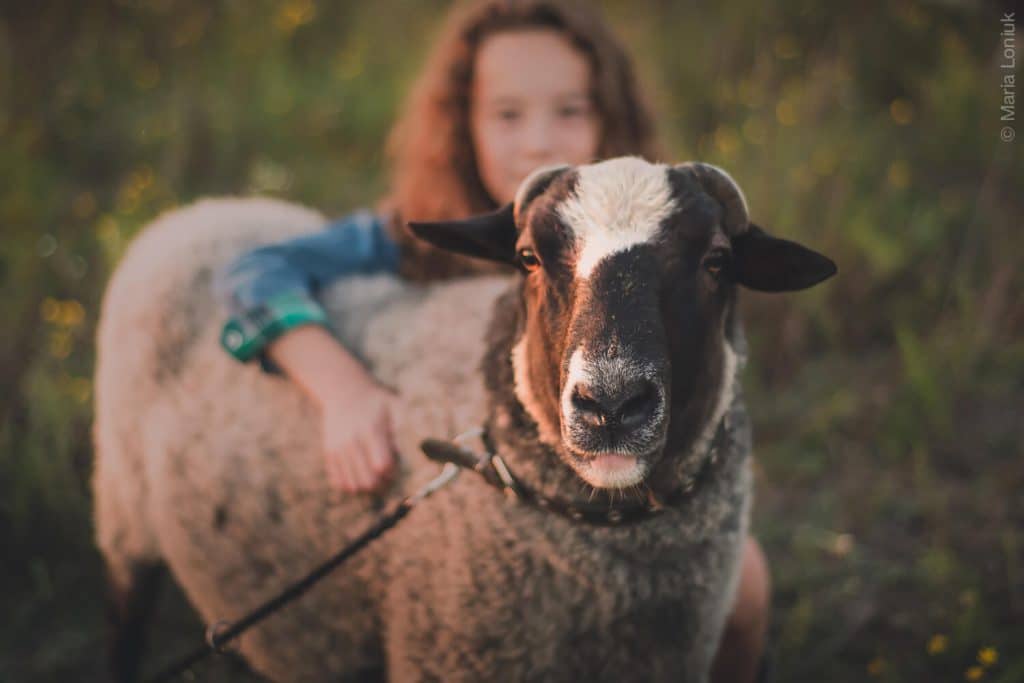
“It is said that there are goals we set ourselves and want to achieve, and there are goals that find us. The horse club is a goal that found me,” Roman says.
While he was mastering entrepreneurship, Maria and her friend moved to a summer house in Boyarka, which the family inherited from their grandfather. They brought a horse, which belonged to a friend. They decided to develop a horse club independently, which was their big dream.
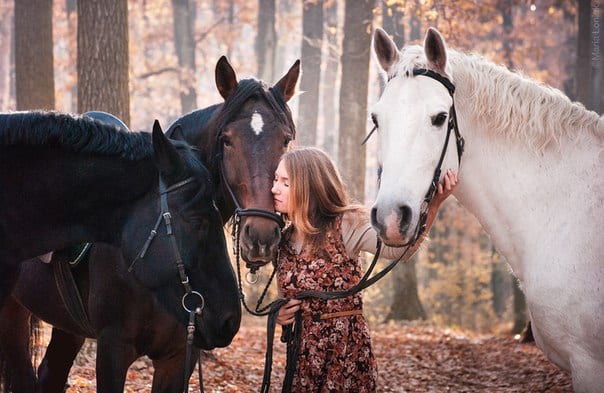
There were absolutely no comfortable conditions for life in the village, only electricity and water supply, which disappeared with the first frosts. At first, Roman was sure: the girls would run away back home after a month or two. However, they got even more excited and started building a stable for the horse. Fascinated by his sister’s determination, he decided to support her: Roman helped construct a stable and also engaged in advertising.
When they started working together, Maria was 16 years old, and Roman was 20.
At first, the family business often hung in the balance due to financial problems. Due to debts, the gas was сut off, and when the well broke, they had to carry water for the horse in buckets for half a kilometer. Despite this, no one was going to leave the common dream.
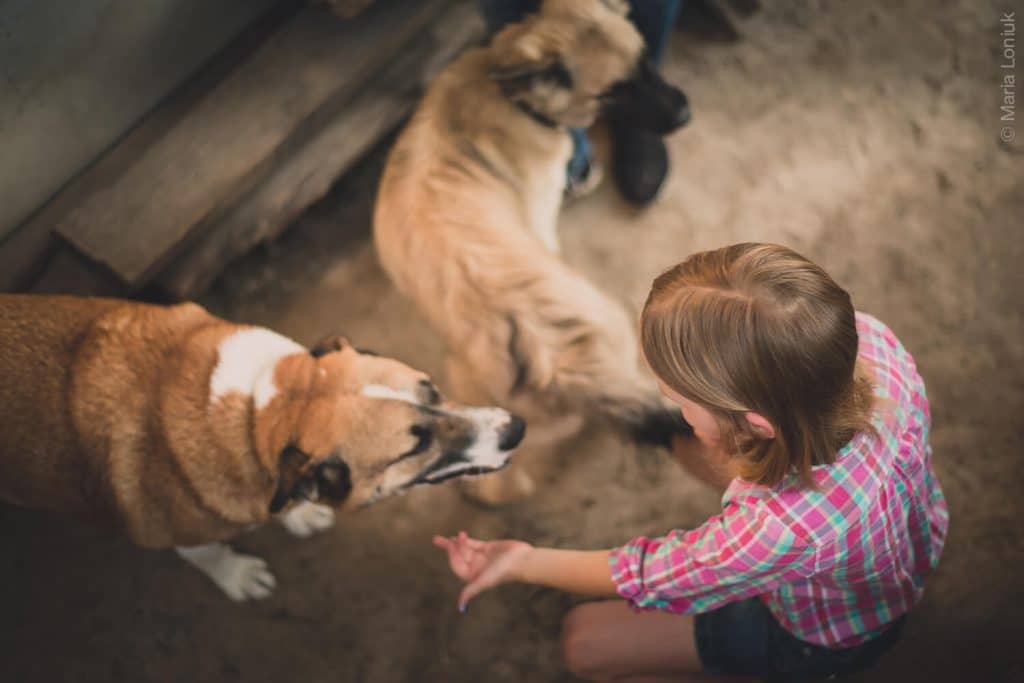
Every month, more and more animals arrived at the farm: several horses were saved by Maria and Roman from death at the slaughterhouse. They bought them “for the meat price”. Roman gave one horse saved from death to his sister for her birthday. The other horse had sick hooves, was constantly lying down and couldn’t get up. No one expected the horse to survive, but Roman felt sorry for the animal and also bought it. At the farm, the horse was treated for a long time and taught to walk again.
Another horse was bought from the circus. Now it can’t carry any loads but still got a chance to live.
At first, they took animals, treated them, and later looked for new owners. They took goats from the elderly lady, who no longer was able to care for them and wanted to sell them for meat. In general, when people noticed that the animals were cared for on the farm, they also began to leave dogs and cats there.
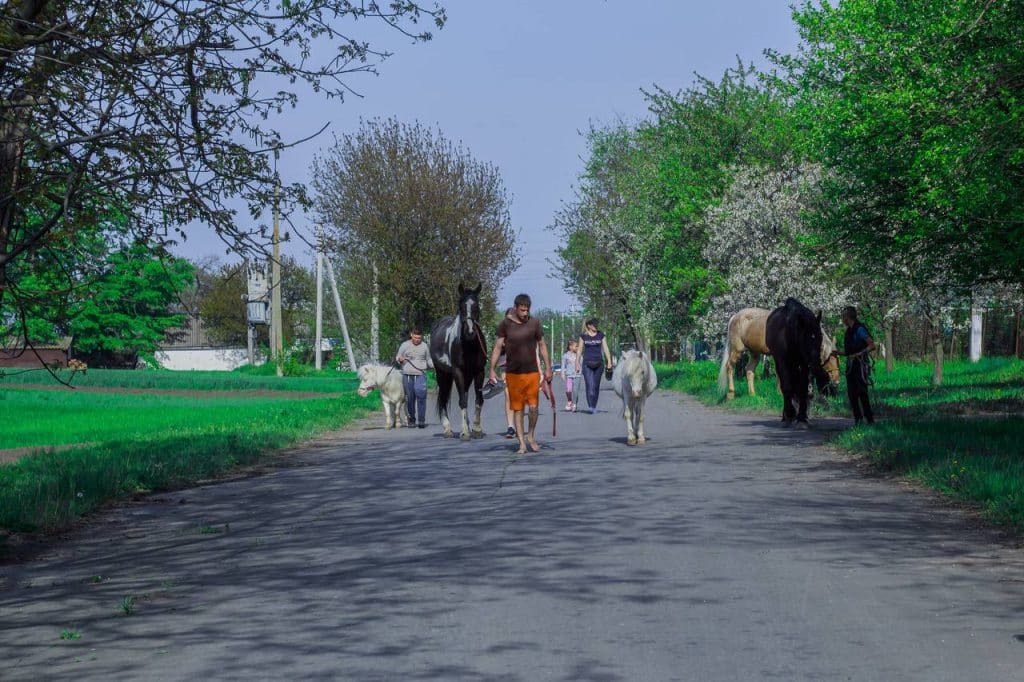
“You wake up in the morning, and you have six puppies sitting by the gate, and after a few days, four more cats. People are irresponsible. They just left the animals and disappeared. We tried to find home for everyone, made announcements, and were looking for new owners. Our farm is small — only 6 hectares, but we had up to 40 animals,” says Roman.
Due to constant replenishment, they decided to build small wooden stables for animals. Acquaintances, as well as caring people, helped to find the wood. Roman made everything on his own. He learned from videos on YouTube.
In good shape. What is more important than money
In the beginning, the farm didn’t make any money — only expenses. It’s not easy to feed so many animals. Roman and Maria worked beside the farm to earn at least a little money.
It all came down to the point that their small farm had to work for self-sufficiency in order to survive. Considering that the farm is located near the forest, they decided to organize paid horse rides, teach horse riding and take photos with horses. They named their horse club “Voskhod horse club”, created a website and developed social networks.
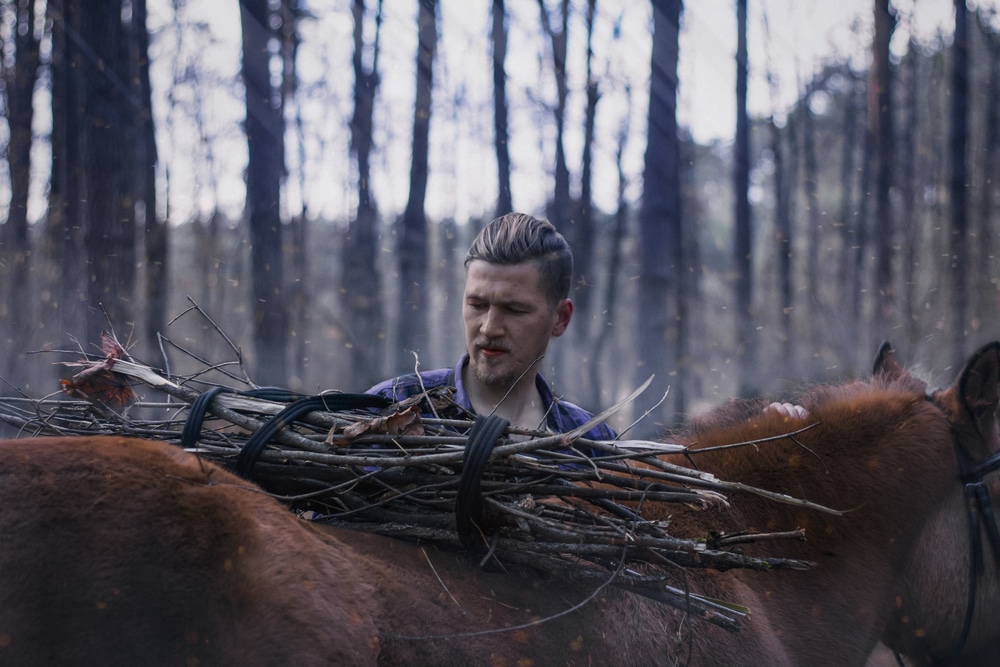
However, the family had its own principles: making money without neglecting their values. That is, even in financial trouble, don’t exploit horses, don’t overload them and take care of both the physical and moral animal health.
In their horse club, the animals walk only in the forest because the soil, compared to asphalt, is not harmful to hooves. They also carefully monitor the rider’s permissible weight, determined for each horse separately, depending on its characteristics. Horses have a diet and working hours.
“Our horses are well-groomed, fed and happy. Everything is fine with their mood as well. Our work is not about making money because first of all, we take care of animals,” Roman says.
People saw that animals were treated well at the club and began to give their horses for recreation. They started with three, then the number of horses constantly increased. It works like this: farm workers take care of the animal and feed it. A trainer also works with a horse to keep the animal’s muscles in good shape. The club receives money for this.
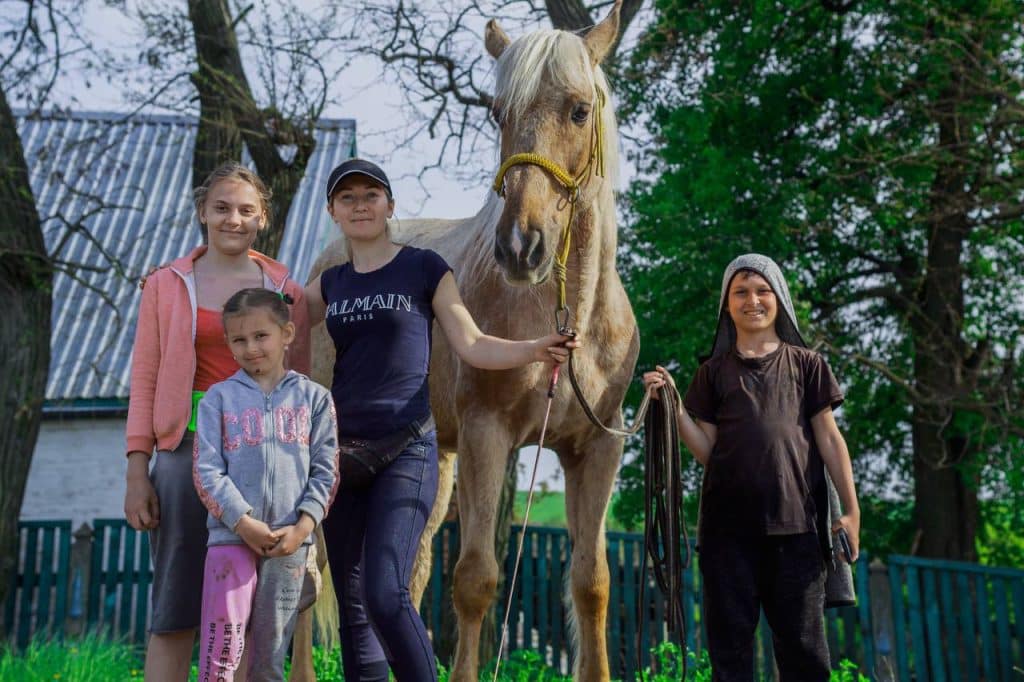
Gradually, the family business began to develop: regular customers appeared, who later became business partners and investors. The farm’s territory became quite cramped for the horse club, so they decided to develop and grow into a small complex and bought a large land plot.
Rescue plan
While the family and their partners were making plans for further development, a great war broke out. While monitoring the news, Roman decided to prepare for the possible events: he set up a cellar in the country, and brought food and water there.
The first explosions sounded extremely loud at the airbase in Vasylkiv, which is 20 kilometers from Boyarka. Later, active hostilities were already in Irpen and Bucha — 30-40 kilometers away.
Meanwhile, the hay ran out, and there was nowhere to get it because of the shelling. One woman helped, who travelled to Poltava to pick it up. Later, the howitzers of the Armed Forces of Ukraine were placed 200-250 meters from the farm. Therefore, the explosions became more frequent and louder. Horses reacted calmly to loud sounds, but dogs cowered and howled. They were petrified.
Friends told Roman that a shell flew straight into the stable on the Zhytomyr highway and burned it to the ground. And when the front was getting closer, the man decided that the animals should be transported to a safer place.
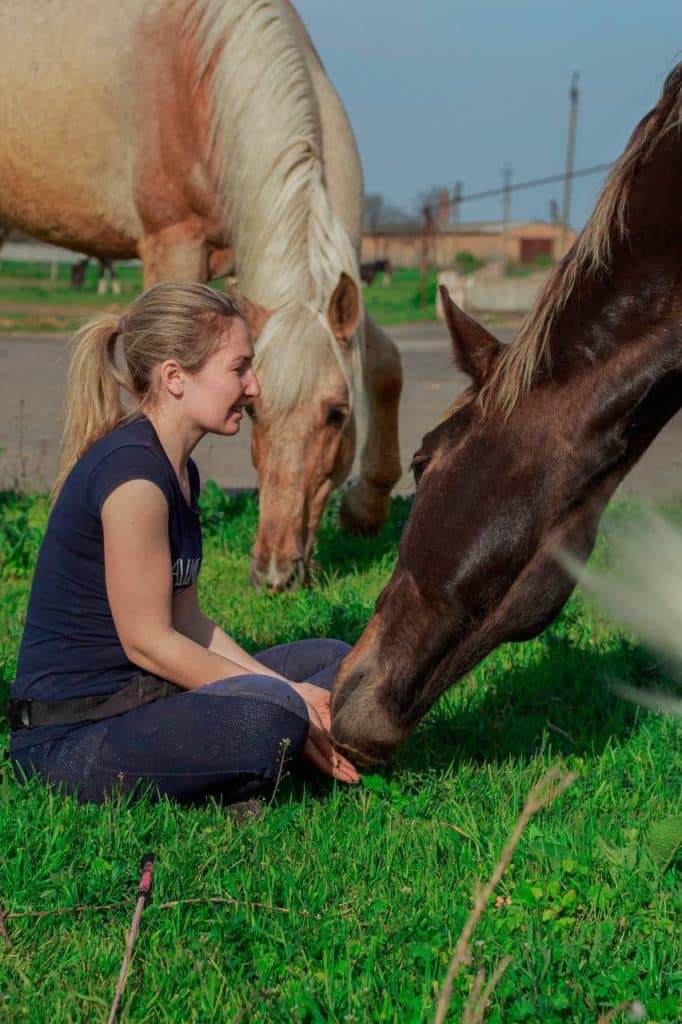
Roman had two options: go to the west of Ukraine, where there was an old farm, or to the village of Matusiv, in the Cherkasy region. They chose the last option, which was closer. The local farmer agreed to welcome the guests from Boyarka to provide them with a cowshed and a small house where they could live.
Then they began to think about transport because the road is long and the animals bare it with difficulty. They were looking for a special trailer for transporting several horses simultaneously. However, since many people were transporting their animals, there were no free trailers, and no drivers wanted to go that far.
Then Roman and his partners bought an old bus from 1985. The car was hastily prepared and equipped with sections to transport several animals at once.
The horses endured the journey with difficulty, constantly sweated and quickly tired. Therefore, they drove 60 kilometers per hour. The one-way trip took 11 hours, and the bus kept breaking.
All the farm residents were transported to the Cherkasy region within two weeks: 17 horses, a pony, a donkey, a ram, a family of goats, 7 dogs and 11 cats.
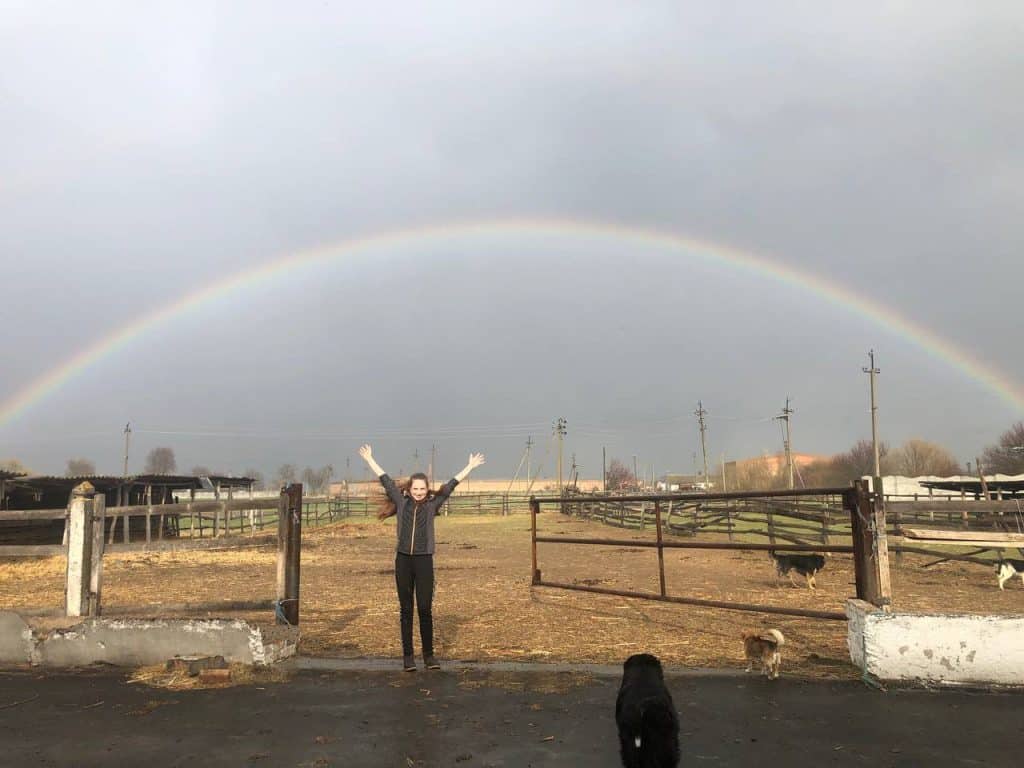
Partners, volunteers and caring people helped save the farm. Also, Maria applied for help from an American charity organization that helped Ukrainians. They responded and donated money.
At the new farm, the cowsheds were transformed into horse stalls. They also wanted to leave the dogs there, but they kept running after people to the house. So, they took the dogs to the house.
Being afraid is not an option
A moving farm from Boyarka spent a month in the Cherkasy region. When the Kyiv Region was liberated from the invaders, and the situation became safe, they decided to return. And the animals also missed their home stables.
After returning home, they continued to develop the horse club and earn money because life in the new conditions in the Cherkasy region hit their pockets.
The farm continues to work, and regular customers have returned. Also, even before the war, he implemented a business scaling plan: together with his partners, he bought 3 hectares of land near Boyarka. They had already managed to enclose it with a fence, connect water and electricity, make a “box” for the future house and build a wooden stable. Most of the animals have already moved there.
Roman is engaged in internal work in the house, as well as promoting his business to find new customers.
In addition, he plans to develop another direction — rehabilitation of people affected by the war. Hippotherapy is a popular method of rehabilitation, thanks to horse training. Roman considers inviting both military and civilians. They want to make rehabilitation free thanks to grants and cooperation with charitable foundations. But due to the current circumstances, it is difficult to plan something, so they move in small steps.
The war is standing in the way of long-term plans. Being able to plan a day, a week is already a luxury. But at the same time, Roman thinks it removes the fear of implementing what he had dreamed about for a long time.
Even in the most challenging times, the main thing is not to stay aside. At one time, people helped Roman to develop his own business and later to evacuate the farm to the Cherkasy region. Roman saved animals that, it would seem, no longer have a chance to survive. He also got involved in a difficult matter — exhumation, because someone had to do it so that people could identify and bury their relatives.
Roman says that the most important thing for him is to protect life.
And where this is not possible, then at least it’s memory.
